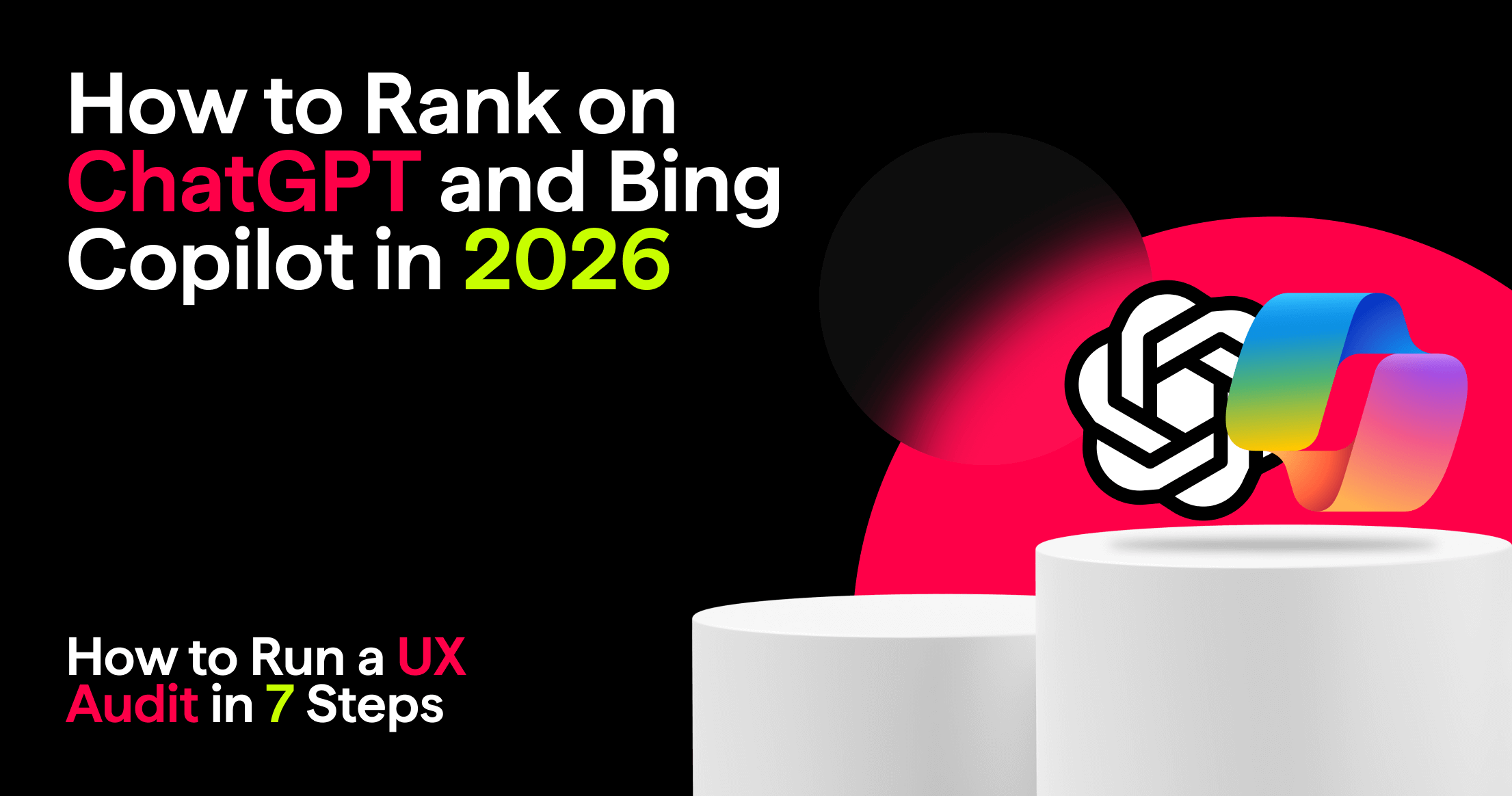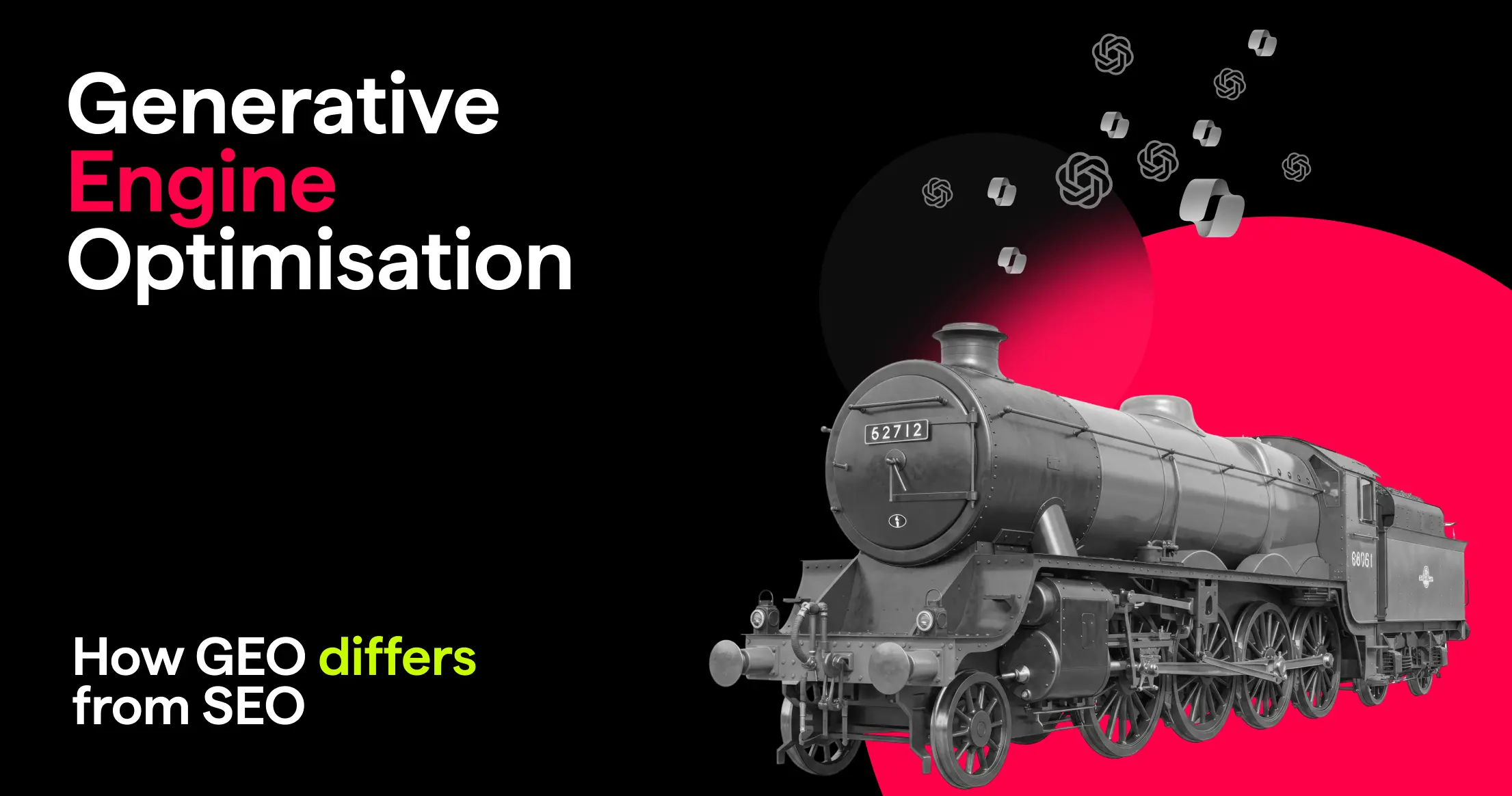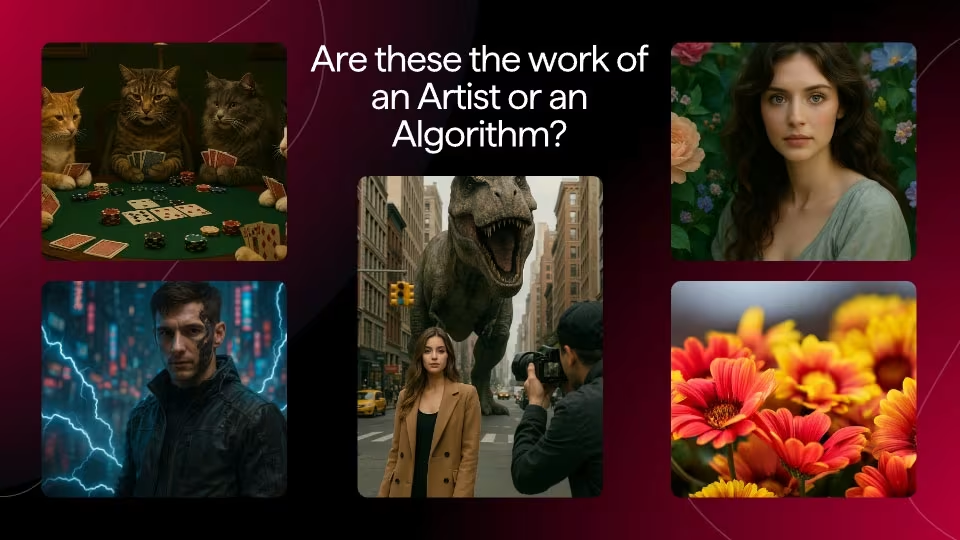
Generative SEO is reshaping how brands get discovered online. Traditional SEO helped you rank on Google. Generative SEO gets your brand mentioned in AI-generated answers.
Tools like ChatGPT, Gemini, and Perplexity now handle over a billion searches each week. They deliver instant recommendations without forcing users to click through multiple sites. If your brand does not appear in those answers, potential customers will not find you.
This shift is changing the discovery process.
People used to search Google, compare results, then make a choice. Now they ask an AI assistant and act on its recommendation immediately. That means you need to optimise for being referenced, not just ranked.
Some call this AEO (Answer Engine Optimisation), AISEO, LLMSEO, or GEO (Generative Engine Optimisation). The names differ, but the goal remains the same: make your content easy for AI systems to cite and recommend.
How do you do this? By combining established SEO practices with tactics designed for AI platforms.
In this guide, I’ll explain what Generative SEO is, why agencies need to care, and how to build content systems that perform across Google and AI search engines.
What Is Generative SEO?
Generative SEO, or GEO (Generative Engine Optimisation), is the practice of optimising content so AI platforms cite and reference it when generating answers.
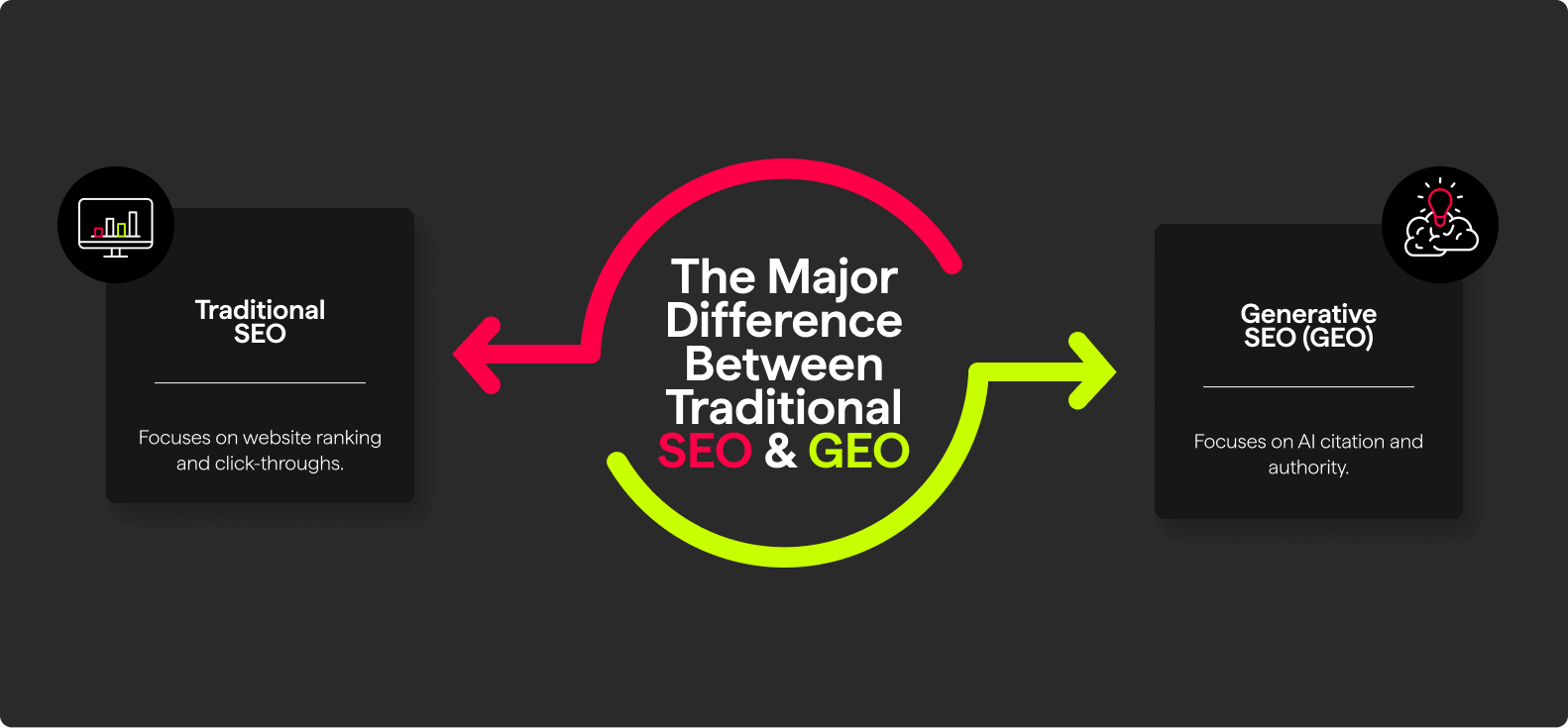
Traditional SEO aims to rank your site in search results and drive clicks. GEO focuses on making your content a trusted source that AI engines quote directly in their responses.
The goals differ, too. Traditional SEO pushes users to visit your website. GEO positions your brand as an authority without requiring an immediate click. When ChatGPT or Perplexity repeatedly cites your content, users start recognising you as an expert. That recognition builds trust over time.
Think of it as playing the long game. You may not get instant website visits from every AI citation. But when someone needs to make a purchase, book a consultation, or download a resource, your brand is already familiar to them. They have seen you referenced multiple times in answers they trust.
This is how lead generation works in an AI-driven search environment. GEO helps you become the go-to name in your field before prospects even reach your site. For agencies looking to future-proof client growth, understanding this shift matters a lot.
Why Agencies Can’t Ignore GEO in 2025
The shift to AI search is not a future trend. It is happening right now. Four reasons stand out for why this matters to agencies managing client visibility.
User Behaviour Has Changed
ChatGPT processes 2 billion prompts daily and reached 700 million weekly users by September 2025. AI platforms now drive traffic to 63% of live websites on the internet.
Users ask questions in conversational interfaces and act on the answers they receive without clicking through to multiple sites. If your clients are not cited in those answers, they lose visibility at the exact moment potential customers are making decisions.
AI Traffic Converts Better
Multiple studies show AI traffic converts 4.4x to 23x better than traditional search, with specific examples like:
- Semrush study: AI traffic converts at 4.4x the rate of organic search
- Ahrefs internal data: AI visitors convert at 23x the rate (12.1% of signups from 0.5% of traffic)
- Adobe study: AI-referred users in banking were 23% more likely to start applications
These visitors arrive with a stronger intent because they have already used the AI assistant to narrow their options.
According to the Ahrefs State of AI in Content Marketing report, companies using AI grew 5% faster than those without it, with median year-over-year growth of 29% for AI users compared to 24% for non-users.
For agencies managing client visibility, these numbers represent a significant portion of potential traffic that traditional SEO alone won’t capture. Early adopters are already seeing the benefits.
Builds Credibility Before the Click
Around 60% of Google queries now end without a click, a trend accelerated by AI Overviews and AI Mode. Traditional rankings still drive traffic, but citations in AI responses build something more valuable: trust and authority.
When prospects see your client’s brand referenced repeatedly in AI-generated answers, they recognise it as credible before visiting the website. That pre-qualified trust leads to higher-intent visits and better conversion rates.
Creates Competitive Advantage
Most agencies have not yet mastered GEO. Those who invest in it now position themselves and their clients as authoritative sources. AI models build trust through consistently accurate, well-structured content.
Once your client’s content becomes a trusted source, competitors struggle to displace that authority. The first-mover advantage in GEO is real, and the opportunity to claim it is now.
Generative SEO extends traditional SEO rather than replacing it, combining ranking fundamentals with AI citation and discovery mechanics, a shift also reflected in how agencies are approaching AI SEO strategies that improve rankings, as outlined by Nine Peaks.
Proven and Strategic GEO Techniques for Agencies
Mastering Generative SEO does not require scrapping your content marketing strategies. You need to adapt your approach. Here are five techniques that work for brands trying to gain AI visibility.
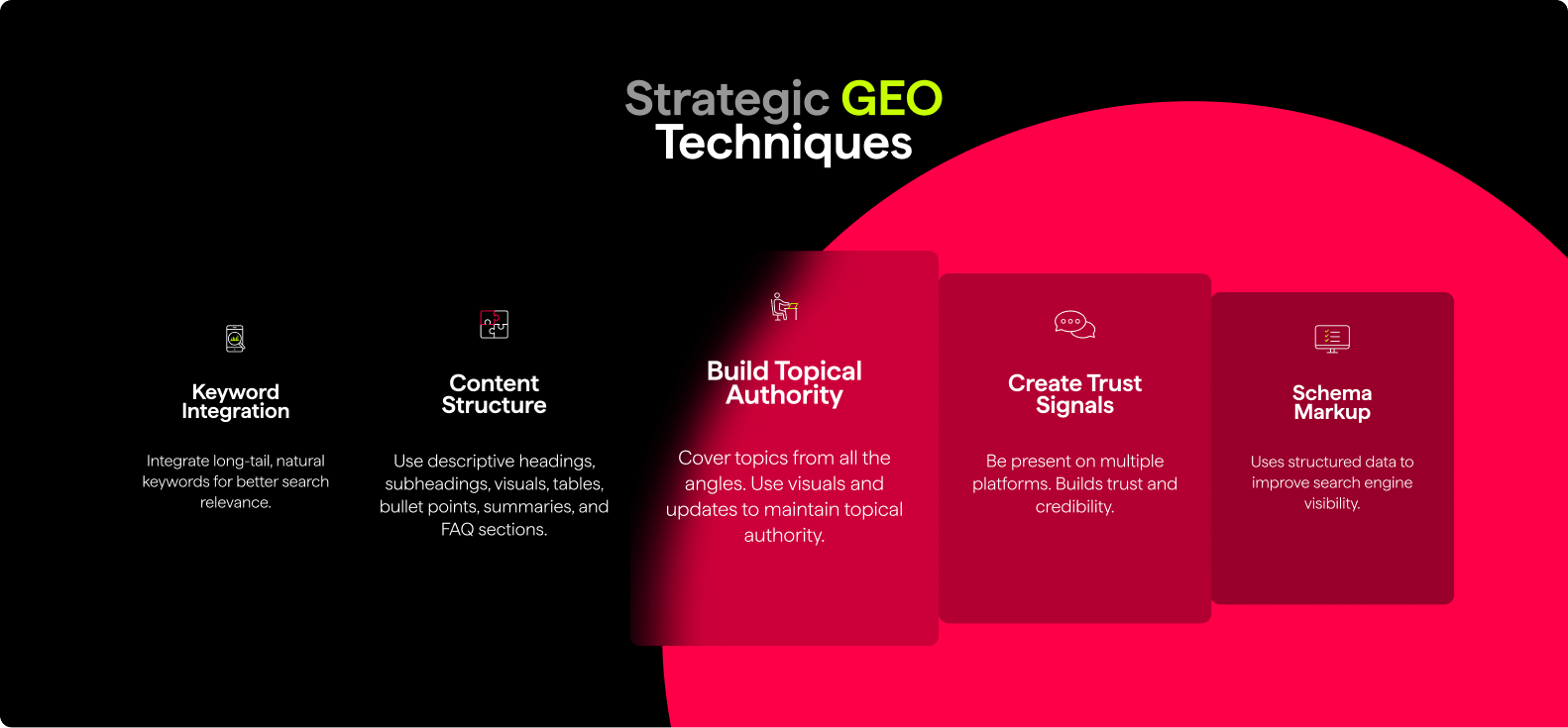
Content Structure and Clarity
AI engines prioritise content that directly answers questions. The first 100 words of any article are critical. Lead with a clear, concise answer to the primary query before expanding on the details. This approach works especially well for how-to guides.
- Use descriptive headings and subheadings to structure your content. AI crawlers scan them to understand context and relevance.
- Break content into modular sections of 100 to 300 words, each focused on answering a specific question.
- Use bullet points, tables, and summaries to simplify information. These formats help AI engines accurately extract and cite content.
Structuring content for humans is something we marketers and SEO specialists have been doing forever, but your SEO strategy for 2025 and beyond must include one additional step – structuring content for AI bots.
Do it right, and you will easily rank in ChatGPT.
Authority and Trust Signals
Traditional SEO focused heavily on backlinks from authoritative sources. The quality of your backlinks determines your ranking for relevant search queries.
This still matters, but the game has shifted. Now you need to build trust signals across multiple platforms.
- Be present everywhere. Along with your website, maintain an active presence on LinkedIn, X, YouTube, and Instagram. The more AI models see your presence across various platforms, the more they trust and cite your content. Post regularly. Publish one long-form LinkedIn piece per week plus three micro-posts.
- Do Reddit marketing. Reddit threads have been outranking traditional websites on Google’s first page. Google AI Overviews cite Reddit in roughly 21% of cases, while Perplexity cites Reddit nearly half the time at 46%. Create your company’s official profile on Reddit (@Company_Name) and start engaging in the relevant subreddits. Focus on authentic participation and transparency when engaging as a brand.
- Publish Claude Artifacts, Perplexity Pages, and Press Releases. Claude and Perplexity let you publish standalone pages that are indexable in Google. ChatGPT cites press release articles almost instantly. If these methods work for you, double down on them.
Tell your team members to create personalised Reddit accounts using the format Chrisfrom[Company_Name] and start commenting on relevant threads. This builds community engagement and brand discoverability.
Build a personal brand on LinkedIn and X for founders and executives by publishing thought-leadership content. This boosts your client’s business’s credibility in the AI algorithm.
Schema Markup and Structured Data
Schema markup remains one of the most effective ways to help AI engines understand your content. Research shows that 81% of web pages cited by AI platforms include schema markup. However, not all schema types matter equally.
- Add schema to all website pages. Use the FAQ schema for question-and-answer content, the Article schema for blog posts and guides, and the HowTo schema for instructional content. ChatGPT gives significant weight to the Person schema, with 70.4% of sources cited including this. Organisation and Article schema also receive importance from ChatGPT.
- Test the schema before adding it to live pages. Use tools like technicalseo.com to validate your schema markup. An incorrect schema is not just unreadable to crawler bots; it also harms your chances of ranking in ChatGPT.
- Use plugins to add schema automatically. If your client has a WordPress website, use SEO plugins like Rank Math SEO or Yoast SEO to add schema easily.
These structured data formats make your content machine-readable, allowing AI platforms to parse and extract information with confidence.
Natural Keyword Integration
Long-tail keywords give you an advantage when ranking in ChatGPT. Make including relevant long-tail keywords related to your business a cornerstone of your GEO strategy.
- Focus on conversational, long-tail keywords that reflect how real people ask questions. Including “what’s the best project management software for small teams?” in your blog works better than repeatedly stuffing “project management software” into it.
- Aim for 1% to 2% keyword density. Anything higher risks sounding unnatural. Semantic relevance matters more than exact-match repetition.
- Chat with ChatGPT, Perplexity, Claude, and Gemini about your business and see how they cite your content. Use those insights in your GEO strategy.
AI engines understand context and semantic meaning far better than traditional search algorithms. Include keywords that your client’s ideal customer profile would use when talking about their business.
Build Topical Authority
Building topical authority helps you dominate search results whenever users search for topics related to your product or service. This also tells AI tools that you are an expert on the topic, and they should cite your content.
- Create topic clusters. A topic cluster has a pillar topic in its centre that covers a broad subject. Supporting cluster pages explore related subtopics in more detail. This is the easiest way to build topical authority organically.
- Cover a topic from all angles. If one of your pillar topics is website design, your cluster topics should include the best website design agencies in London, what to look for when choosing a website design agency, and the best website design agency for an aviation company. Each pillar should have 5 content topics with 10 clusters per topic.
- Emphasise EEAT. While originally a Google Search concept, Expertise, Experience, Authoritativeness, and Trustworthiness are even more critical for AI visibility. ChatGPT’s knowledge is based on credible sources, and it is trained to favour authoritative information.
Update content regularly with fresh data and insights. AI models favour current information over outdated resources. The goal is to create the definitive resource on your topic, leaving AI platforms no choice but to cite you.
See How GEO-Ready Your Website Really Is
Get a free Generative SEO check to uncover missed AI citation and visibility opportunities.
Get Your Site AuditTracking Your AI Visibility: Tools and Metrics
You cannot improve what you do not measure. Traditional SEO offers clear metrics like rankings and traffic. GEO requires a different approach to tracking.
The challenge is that AI citations do not always generate immediate clicks, making them harder to monitor through standard analytics tools.
Essential Metrics to Monitor
- Brand Mentions: This metric tells you which AI platforms are currently mentioning your client’s brand and how frequently. Brand mention context and sentiment matter equally. Is your client cited positively, neutrally, or in a less favourable light?
- Cited URLs: Keep track of which specific URLs are being cited. This reveals which pieces of content resonate most with AI engines, helping you identify successful patterns to replicate.
- Share of Voice in AI Responses: When users ask questions in your client’s niche, what percentage of responses cite your client versus competitors? Recent data from 6 million AI responses shows that first place captures 36.55% share of voice, second place gets 19.7%, and third place receives 13.21%. This winner-takes-all pattern makes share of voice the most important metric in AI search.
- Referral Traffic: Monitor referral traffic from AI platforms in Google Analytics. While not all citations drive immediate clicks, tracking this metric reveals the commercial impact of your GEO efforts.
AI Visibility Tracking Tools for Agencies
Google traffic can be tracked in Google Search Console and Google Analytics, but tracking AI traffic requires different tools. Here is how you can keep track of AI visibility for your client’s brand.
Premium Solutions:
| Tool | Starter Plans | What do you get |
| Profound | $99/mo | Track across 10 AI answer engines, prompt tracking, ChatGPT shopping, unlimited domain tracking, and third-party integrations. |
| Peec AI | €89/mo | Prompt tracking, access to ChatGPT, Perplexity, and AIO, AI answers analysis, unlimited countries, unlimited seats, and email support. |
| OtterlyAI | $29/mo | Brand reports, URL audits, multi-country support (50+), AI keyword research tool, brand visibility index, domain ranking, GEO audit, and more. |
| Ahrefs | $129/mo | Ahrefs’ Brand Radar AI helps you discover how your brand shows up in ChatGPT, Perplexity, Gemini, Google AI Overviews, and AI Mode. |
| Semrush | $99/mo per domain | AI visibility reports, 180M+ prompts, AI competitor analysis, site audit for AI readiness, and brand mentions across various AI platforms. |
| ZipTie | $69/mo | Track AI traffic across ChatGPT, Perplexity, and AI Overviews; AI search checks; AI data summaries; AI content optimisations; and multi-country support. |
Tracking AI Traffic Manually Using Google Analytics (GA4):
If you do not want to spend on the AI visibility tools, you can track traffic that comes from AI tools for free in Google Analytics (GA4).
One of the SEO strategists that I follow on LinkedIn, Matthew Capala, shared a simple way that you can implement in 2 minutes.
Create a new channel group
Log in to your Google Analytics and create a new channel group. You can name the channel group anything you want – LLM Traffic, AI Visibility Tracker, etc.
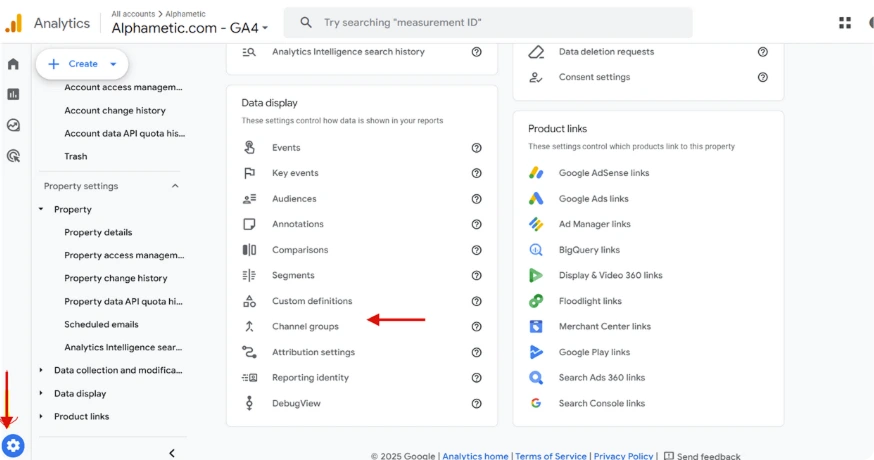
Add channel group details and the Regex code
After adding a relevant name for your channel, go to Channel Conditions and select Source. Set the condition as matches regex and paste the following code:
| ^.*ai|.*\.openai.*|.*copilot.*|.*chatgpt.*|.*gemini.*|.*gpt.*|.*neeva.*|.*writesonic.*|.*nimble.*|.*outrider.*|.*perplexity.*|.*google.*bard.*|.*bard.*google.*|.*bard.*|.*edgeservices.*|.*astastic.*|.*copy.ai.*|.*bnngpt.*|.*gemini.*google.*$ |
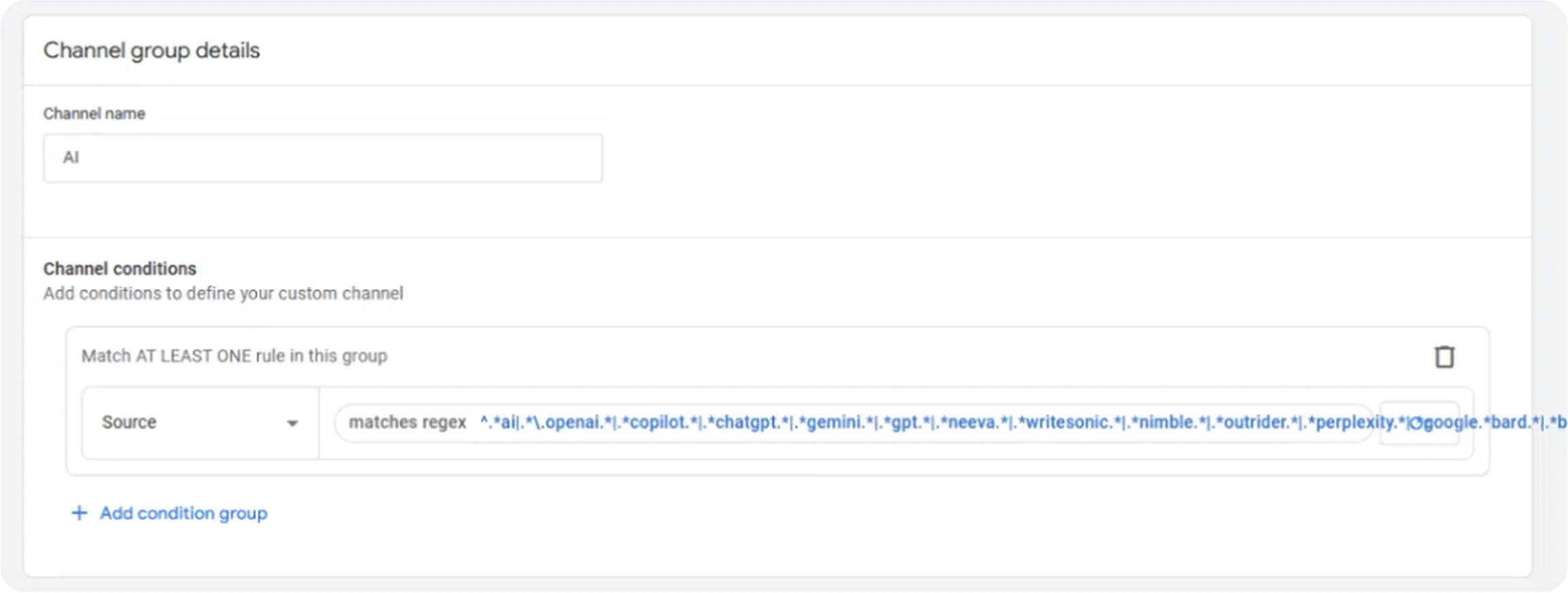
🔔Note: Paste the entire code, do not miss a single character. Also, as new AI platforms and LLMs come out, this code may need to be updated.
Getting Started: A Practical GEO / LLMSEO / AEO / AISEO Roadmap for Agencies
| Phase | Core Task | Frequency | What to do |
| 1 | Audit | Week 1-2 | Test 20-30 relevant queries across AI platformsIdentify gaps where competitors are cited insteadAssess current content structure and readability |
| 2 | Optimise | Week 3-6 | Start with the highest-priority pages (top traffic, conversion pages)Restructure content with clear answers up frontAdd citations, expert quotes, and statisticsImplement schema markupUpdate metadata and summaries |
| 3 | Monitor & Iterate | Ongoing | Set up a tracking system (tool or spreadsheet)Check AI visibility monthlyAdjust content based on what’s workingKeep content fresh with new data and insights |
| 4 | Scale | Month 3+ | Expand to additional contentCreate AI-optimised FAQ sectionsBuild topic clusters around core themesTrain team on GEO best practices |
So, Are You Ready to Get Cited in AI Tools?
How people discover a product or brand has changed since the launch of LLMs; they no longer want to scramble through 10 different sources, compare brands, check reviews, and then make a decision – they want a summarised answer that pushes them to make the decision.
And early adopters will gain citation authority that’s hard to replace.
GEO is not a replacement for traditional SEO; it is simply an extension – a new and more advanced way of doing SEO. Traditional SEO is still the foundation of your online presence; adding Generative SEO tactics to it simply expedites the results.
A good place to start is to audit your website for current AI visibility, optimise strategically, and track diligently. Once you have enough data, start scaling it.
FAQ's
What is Generative SEO (GEO)?
Generative SEO is the process of optimising your content to be cited and summarised by AI models like ChatGPT, Gemini, and Perplexity – not just ranked on Google.
Did this answer your question? YesThat’s great glad we could help! Start a ProjectNoNo problem, one of our experts can give you a more in-depth answer. Ask our ExpertsHow is Generative SEO different from traditional SEO?
Traditional SEO targets keywords and backlinks, while GEO focuses on entities, structured data, and trust signals recognised by AI models.
How can agencies make their content GEO-ready?
Use schema markup, build topical authority, and ensure brand data is consistent across your website and trusted directories.
Did this answer your question? YesThat’s great glad we could help! Start a ProjectNoNo problem, one of our experts can give you a more in-depth answer. Ask our ExpertsWhat tools can track AI visibility or citations?
Tools like Profound, Peec AI, OtterlyAI, Ahrefs’ Brand Radar AI, Semrush, and ZipTie help monitor how often your content appears in AI responses.
Did this answer your question? YesThat’s great glad we could help! Start a ProjectNoNo problem, one of our experts can give you a more in-depth answer. Ask our ExpertsCan I track traffic and referrals from ChatGPT for free?
Yes, you can track your AI traffic for free using Google Analytics (GA4). Create a channel group, add the Regex code (shared above) as a Source under Channel conditions.
Did this answer your question? YesThat’s great glad we could help! Start a ProjectNoNo problem, one of our experts can give you a more in-depth answer. Ask our Experts

